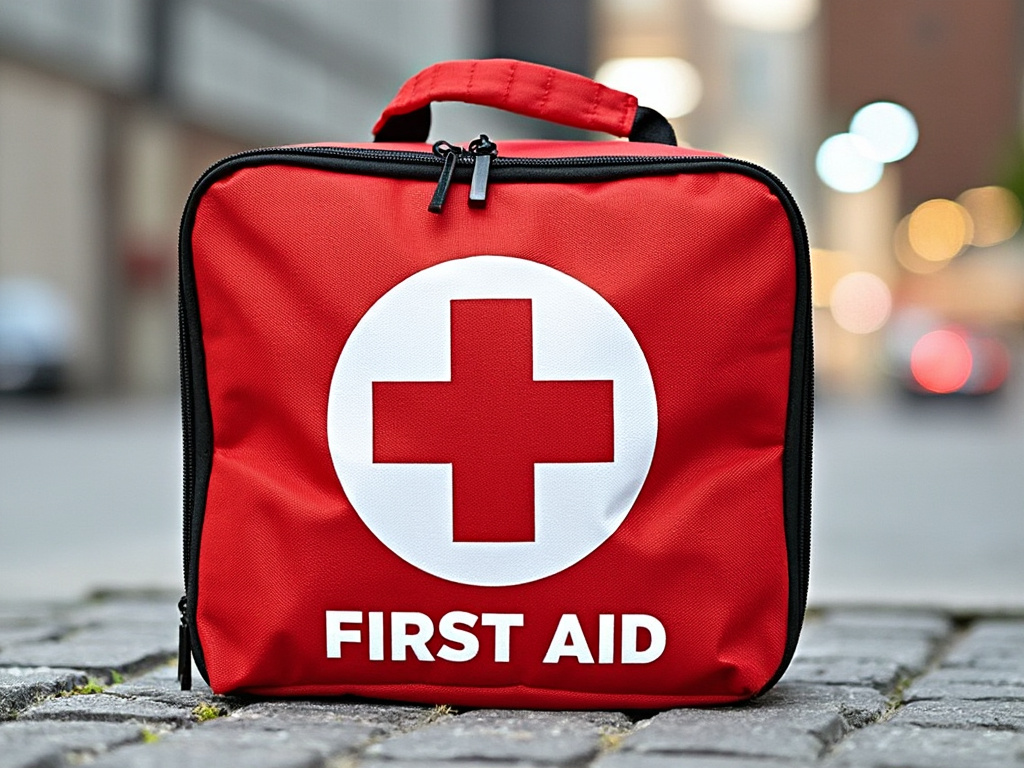
Here’s a basic guide to first aid that can help in common emergencies:
General Principles:
- Stay Calm: Assess the situation safely without putting yourself in danger.
- Call for Help: Dial emergency services if the situation is serious.
- Consent: If the person is conscious, get their consent to help them.
Common First Aid Scenarios:
1. Cuts and Scrapes:
- Clean: Wash your hands and if possible, wear gloves. Clean the wound with running water.
- Stop Bleeding: Apply gentle pressure with a clean cloth or bandage until bleeding stops.
- Apply: Use an antibiotic ointment if available, then cover with a sterile bandage.
2. Burns:
- Cool: Run cool (not cold) water over the burn for at least 10 minutes or use a cool compress.
- Cover: Use a sterile, non-fluffy dressing. Do not use ice, butter, or any ointments on the burn.
- Pain Relief: Over-the-counter pain relievers can be used if not allergic.
3. Fractures or Sprains:
- Immobilize: Do not move the injured part. Use splints or slings if available to keep it still.
- Ice: Apply ice packs to reduce swelling, but not directly on skin; wrap in a cloth.
- Elevate: If possible, raise the injured limb above heart level to reduce swelling.
4. Choking:
- Heimlich Maneuver: For adults, stand behind them, hands around their waist, make a fist above the navel but below the ribcage, and thrust inward and upward.
- For Infants: Use back blows and chest thrusts instead.
5. Unconsciousness and Not Breathing (CPR):
- Check: Ensure the scene is safe, tap the person and shout, check for breathing.
- Call: Emergency services or ask someone to call.
- Compress: Start chest compressions. Push hard and fast in the center of the chest at a rate of about 100-120 compressions per minute.
- Rescue Breaths: If trained, tilt head back, lift chin, pinch nose, and give two rescue breaths after every 30 compressions.
6. Allergic Reactions:
- Epinephrine: If the person has an epinephrine auto-injector (like an EpiPen), help them use it.
- Monitor: Watch for signs of anaphylaxis like difficulty breathing, swelling, or hives.
7. Poisoning:
- Identify: Try to find out what was ingested, how much, and when.
- Call: Contact Poison Control immediately or emergency services.
- Do Not Induce Vomiting: Unless instructed by a professional.
Important Tips:
- First Aid Kit: Always have a well-stocked first aid kit available.
- Training: Consider taking a first aid course to be better prepared.
- CPR Certification: Learning CPR can save lives in cardiac arrest situations.
Remember, these are basic guidelines. In any emergency, professional medical help should be sought as soon as possible. If you’re ever in doubt about how to proceed, it’s best to err on the side of caution and seek professional advice or assistance.

